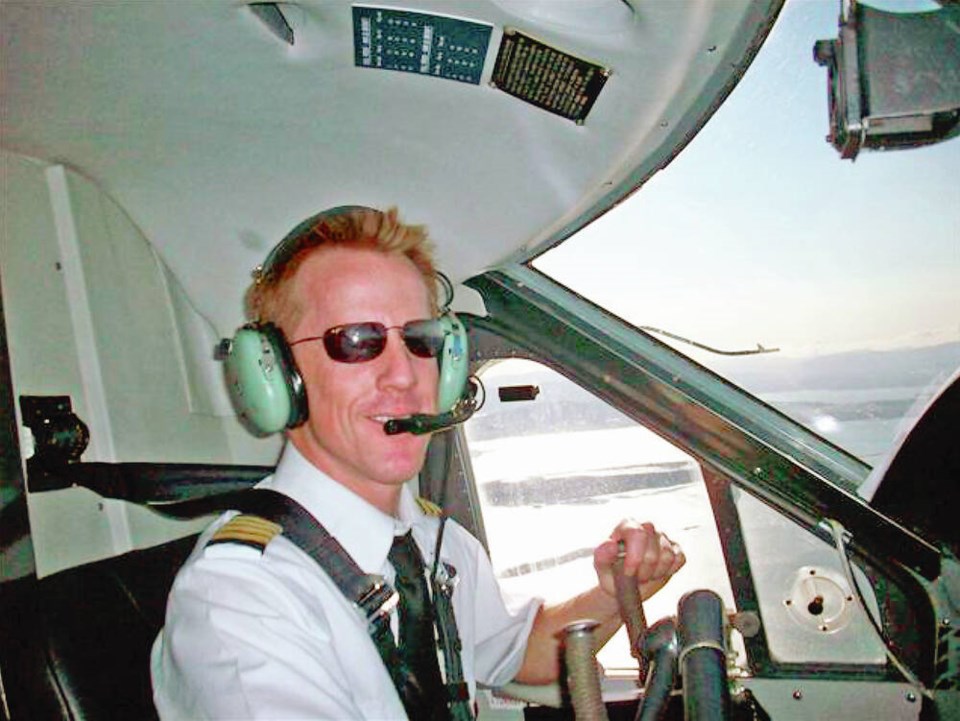A Sidney mother says she never doubted her son’s competence after the small plane he was piloting nosedived into the water in Australia in 2017, killing five other people on board, but it was comforting to hear a coroner’s inquest confirm it.
“I never for one second thought this is my son’s fault, not for one millisecond,” said Orlis Morgan who moved to Sidney in 2011 with her husband, Rusty. “I knew it in my heart and that was sufficient for me. I knew the truth and that’s what I was able to carry with me every day.”
Pilot Gareth Morgan, 44, was taking a family from the United Kingdom on a 20-minute seaplane flight from Cottage Point north of Sydney to Rose Bay on New Year’s Eve 2017.
Just three minutes into the flight, however, the aircraft went off-course, taking a steep sharp turn into Jerusalem Bay, stalling and nosediving into the water.
Despite witnesses on nearby watercraft diving into the water, the pilot and passengers could not be extricated from the aircraft, the inquest found. The tail of the plane, which was above the water, sank within 10 minutes.
Morgan died, along with businessman Edward Cousins, 64, travelling with his two adult sons, Edward, 28, and William, 41, and his fiancée, Emma Bowden, 53, and her daughter Heather Bowden-Page, 11.
In January the aircraft was recovered in pieces for investigation.
The inquest, held in October, with findings released on May 26, found cracks in the aircraft’s exhaust collector ring allowed exhaust gases with high carbon monoxide concentrations to pass from the exhaust assembly into the aircraft cabin.
“It cleared up the pilot’s responsibility, that there was nothing he could do,” said Morgan. “That was the overriding message, confirmation that carbon monoxide leaked into the cockpit and it was in the blood samples of the deceased.”
The inquest found that the route of entry for the gases was likely holes in magneto access panels left open by three missing bolts and gaps around “an incorrectly oriented magneto access panel.” Exposure to carbon monoxide in the cabin impaired the pilot’s ability to operate the aircraft safely, especially given the complexity of the task, the inquest found.
Carbon monoxide poisoning occurs as the gas binds with hemoglobin in the blood and forms carboxyhemoglobin. When this happens, less oxygen is carried to body tissues and vital organs such as the brain and heart. The inquest found COHb was present in the blood samples of all the plane’s occupants.
An earlier police investigation concluded “something had happened to Mr. Morgan shortly after the commencement of the right hand turn, and that he was incapacitated at the time of the accident.”
The float-equipped de Havilland DHC-2 Beaver was built in 1963 and acquired by Sydney Seaplanes in 2006.
Gareth Morgan began flying for the company the next year.
An experienced pilot, Morgan held a commercial and air transport pilot licence and a multi-engine instrument rating. He had over 10,000 hours of flying experience, 9,000 hours of which were on float-equipped aircraft, including the DHC-2 he was piloting on the day of the crash.
Morgan, who previously flew seaplanes for Harbour Air between Vancouver and Nanaimo and North Saanich, had flown the route between Rose Bay and Cottage Bay more than 780 times, according to the inquest, and on the day of the crash had conducted four earlier flights on the same route. Colleagues respectfully described him as “very careful and risk averse.”
Morgan was a middle child of three, a devout Christian who spent time doing mission work in an orphanage in Mozambique, worked to help the homeless in Vancouver’s Downtown Eastside, and built homes for the destitute in Mexico, the inquest heard.
Despite his many accomplishments, Orlis Morgan said her son remained completely “without ego, and was a modest and gentle soul.”
As a child, Morgan, who grew up in Vancouver, was a provincial record holder in the 80-metre hurdles and provincial pentathlon champion. He was also a skier and could have pursued a professional soccer career but instead chose aviation.
It was a perfect fit for his adventurous spirit, love of nature and being at the helm of things to look after others, his mother said.
Orlis Morgan said learning of her son’s death shattered her belief system: “I said this can’t be true, this can’t be true.”
>>> To comment on this article, write a letter to the editor: [email protected]



